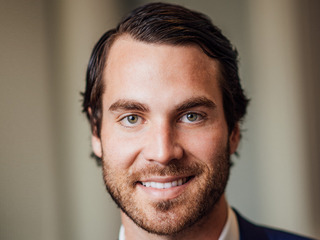Steven Loeb and Bambi Francisco interview Jordan Feldman, CEO of Rightway Healthcare, a platform that enables employees to better navigate their healthcare plans. The company recently raised a $100 million in Series C round, bringing its total funding to $130 million, while valuing the company at $1.1 billion.
(Editor’s note: On May 19 we will be hosting the Future of Mental and Behavioral Health 2021 virtual event. We’ll have top-level VCs and C-level executives from the leading mental and behavioral companies, such as Teladoc’s BetterHelp, Amwell, Doctor on Demand, Kaiser Permanente, Bessemer Ventures and more. )
In 2021 it’s finally okay to talk about our mental health and that’s why we’re excited to be sponsored by BetterHelp. But what IS therapy? It’s whatever you want it to be. Maybe you’re feeling insecure in relationships or at work, or not very motivated right now. Whatever you need, it’s time to stop being ashamed of normal human struggles and start feeling better. Because you deserve to be happy. BetterHelp is customized online therapy that offers video, phone and even live chat sessions. Plus, it’s more affordable than in-person therapy but just as effective. See if it’s for you.
This podcast is sponsored by BetterHelp and VatorNews listeners get 10% off their first month at BetterHelp.com/Vator. This podcast is also brought by Octave, your partner for mental health and emotional well-being. Learn more at FindOctave.com. Also thanks to NeuroFlow which is working with hundreds of healthcare organizations to provide best-in-class technology and services for the effective integration of behavioral health. Learn more at neuroflow.com)
For these digital health podcasts, our goal is to also understand these three high-level questions: How are we empowering the consumer? Are we creating productivity that also allows us to see overall economic costs go down? How is this advancement changing the role of the doctor?
Highlights from the interview:
- Employees have more information, choices, and financial accountability than they’ve ever had, but not the tools and resources to address it. On the other side, employers are looking at ways to engage their population and address rising costs. There was no member experience platform or ecosystem that patients, employees and members wanted to use. That’s why Rightway was started.
- Rightway has two platforms: one is on the care navigation side, and that’s around optimizing benefits sitting on top of the medical and pharmacy plan to create empowered healthcare consumers. The other side is a full-stack pharmacy benefits management platform (PBM), which is replacing the legacy incumbents. These two create what the company wants to be the most comprehensive platform in the enterprise healthcare ecosystem.
- More than half of employees don’t understand their health benefits. That’s because healthcare is confusing and complex; there are a lot of nuances and outliers as to how the system operates, making it confusing for the average consumer. It’s not that people don’t want to understand, but nothing has been done to make it easy for them.
- The company is seeing over 40 percent of a population using Rightway every quarter; it has net promoter scores in the 80s and 90s; and companies using Rightway are spending 14.5% less on healthcare than companies that aren’t.
- Rightway mines over 10,000 data points to identify high-risk and rising-risk members. One of the company’s biggest efforts is understanding its population, so it need to understand what’s going on with that population, and what’s contributing to costs. That’s why the company has a predictive risk score to understand who may need more help or support.
- To build those member profiles, the company is taking historical claims data, which comes from the carrier. To build doctor quality scores, the company is looking commercial and CMS historical claims, databases like ProPublica and Leapfrog. When the company creates networks, it has data partners that help it create those categories. Some data is unique, and in-house, but most is being connected through its ecosystem partners, which the company is synthesizing and making actionable for its members.
- In 2020, Rightway launched a PBM called RightwayRx, after employees were asking how to get cheaper prescription drugs. Right now, 85% of prescription drugs run through through PBMs: Optum, CVS, and Express Scripts, and they are seeing over $50 billion in operating profit by taking money from retail pharmacies, wholesalers, and drug makers, but they not aligned with underlying employee and employer.
- Rightway isn’t competing with companies like GoodRx and Amazon with its PBM, since they are on the cash-pay side. Instead, the company wants to look to them to make sure they have the best pricing for the member; Rightway is trying to access cheaper/most affordable drugs for its members and it will integrate Amazon or GoodRX pricing. Rightway’s competition is traditional PBMs focused on the employer and healthplan market.
- Rightway started with care navigation because it believed that was the digital front door into healthcare, and that is every member had a doctor in their family and that kind of support, it could start to improve the healthcare experience. People need a centralized ecosystem to become better healthcare consumers.
- Rightway’s north star is around member engagement, high customer satisfaction, and a reduction of total cost of care. The company expanded into pharma so it could deliver across those variables. Now, it has a navigation platform and a PBM to control pharma costs, so it can longitudinally support that member relationship in a way that nobody else can. Now Rightway can be a comprehensive platform in the enterprise healthcare ecosystem.
Subscribe to our podcasts to get our interviews and shows as soon as they’re published!

















